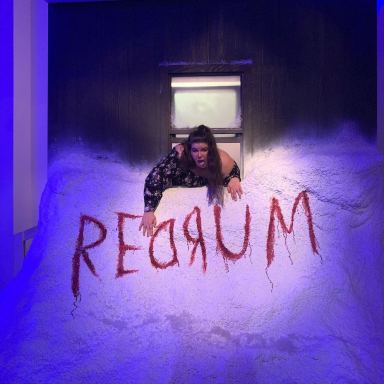22+ Best Clone Movies
This is a definitive list of all the clone (clone) movies made in Hollywood and beyond.
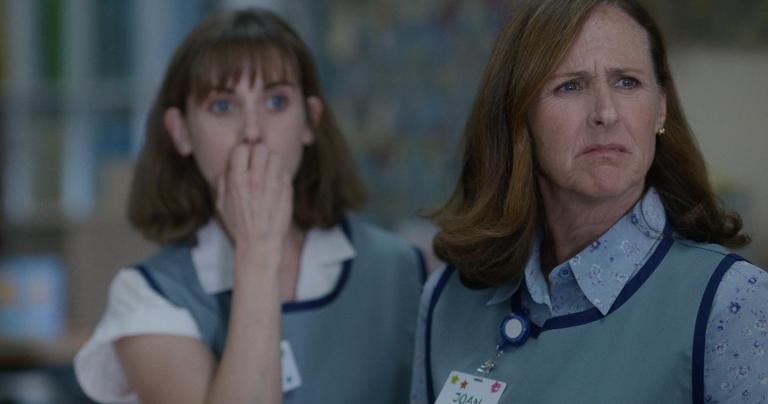
Table of Contents
Clone movies are a relatively recent phenomenon. In fact, the first movie to ever deal with cloning, The Resurrection of Zachary Wheeler, only came out in 1971. In literary history, Aldous Huxley’s novel Brave New World (1932) had a dystopian vision of human reproduction called the Bokanovsky process, which is virtually a type of cloning, but Huxley never actually used the word in his book.
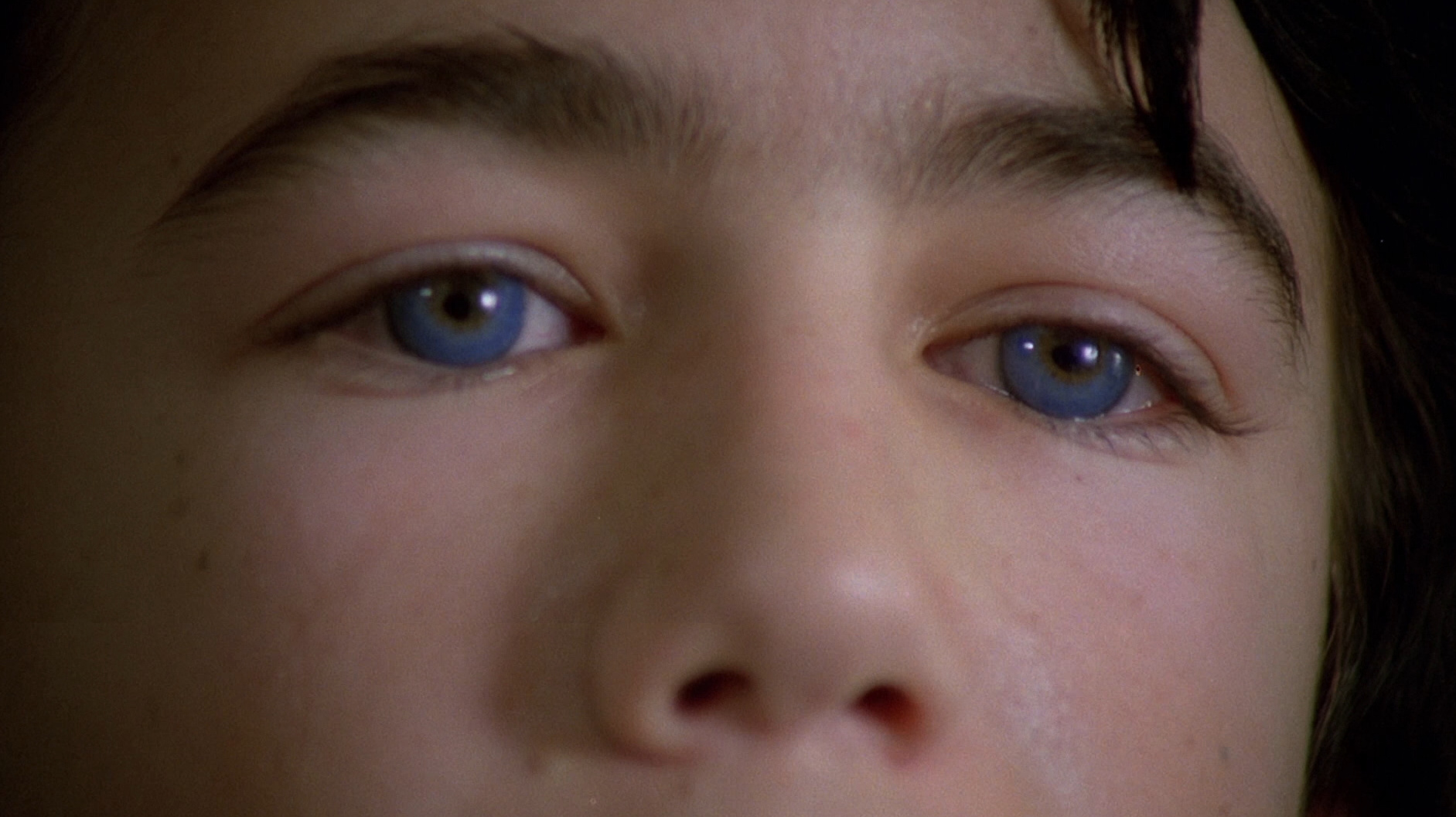
The Boys from Brazil (1978) is an early clone movie with a compelling plot.
Etymologically, the word “clone” only appeared in the English language in 1903 as a term used by plant physiologist Herbert J. Webber to refer to spreading and propagating the DNA of plants. However, the root of the word and the concept goes all the way back to ancient Greece.
Cloning only became a mainstream phenomenon in the 1990s, with the successful cloning of Dolly the Sheep in 1996 by a European company PPL Therapeutics along with larger awareness of genetic engineering, which spawned a plethora of Hollywood films about clones. Here we’ll catalog and archive the best clone cinema out there.
Top Clone Movies
The Resurrection of Zachary Wheeler (1971)
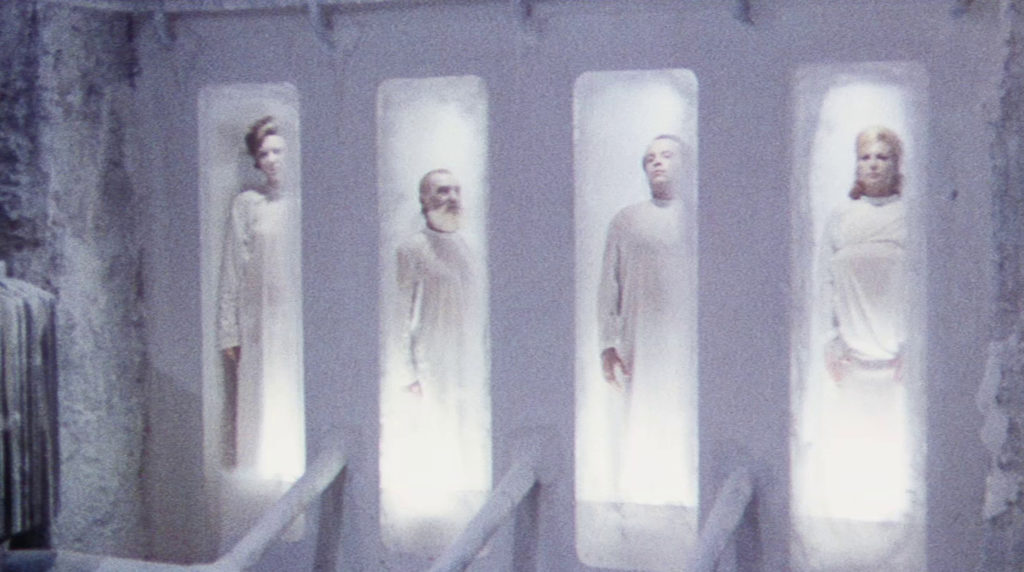
Leslie Nielsen of Airplane! and Naked Gun fame stars as TV reporter Harry Walsh, who witnessed with his own eyes—and recorded it on videotape—a car crash involving US Senator Zachary Wheeler (Bradford Dillman). But when he goes to the hospital to follow-up with authorities on Wheeler’s condition, he is told that the Senator has never been there. Then Walsh is betrayed by his own TV station, who retracts his story and offers a public apology when the senator’s office calls to announce that he has been on a fishing trip the entire time. Then the film suddenly switches to the perspective of Senator Zachary Wheeler, who wakes up in a hospital to find that several of his bodily organs are new and have been transplanted from others. To his horror, Wheeler realizes he is part of an international medical blackmail scheme involving the cloning and reanimation of political leaders.
The Boys from Brazil (1978)
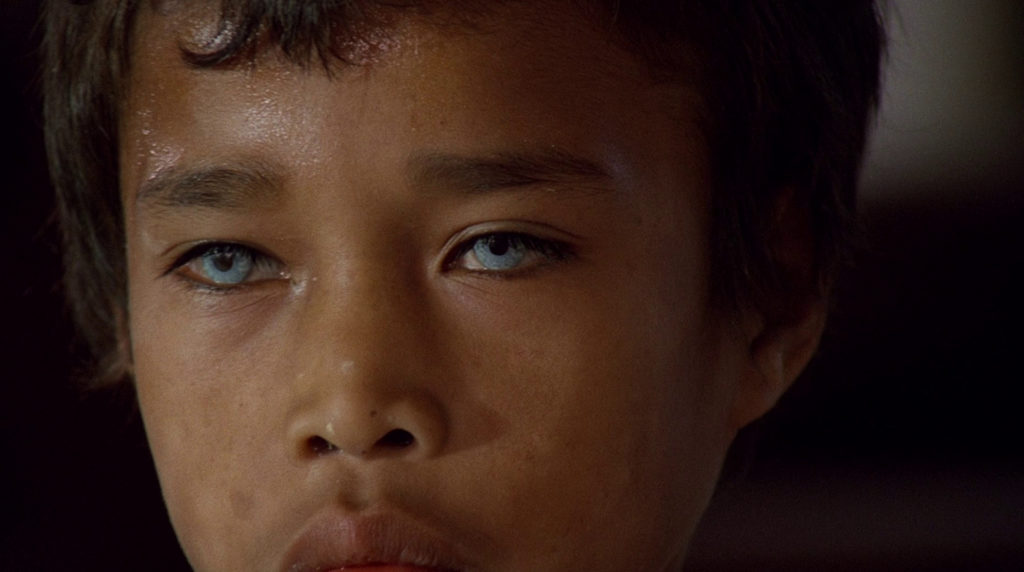
In this British/American film that one three Academy Awards—for Best Supporting Actor (Laurence Olivier), Best Music, and Best Film Editing—Gregory Peck stars as infamous Nazi Doctor Josef Mengele, who escaped from World War II’s ruins to Paraguay. Mengele, who was known during the war for his cruel experiments on concentration-camp victims, has hatched a new plot that involves cloning. He orders the murder of 94 civil servants who are relatively old compared to their wives. Suddenly, each of those wives give birth to a child who looks remarkably similar to those of all the other wives. This is because all of these children are clones of Adolf Hitler. Sir Laurence Olivier stars as a Jewish Nazi hunter who seeks to thwart Mengele’s sinister plan.
Creator (1985)
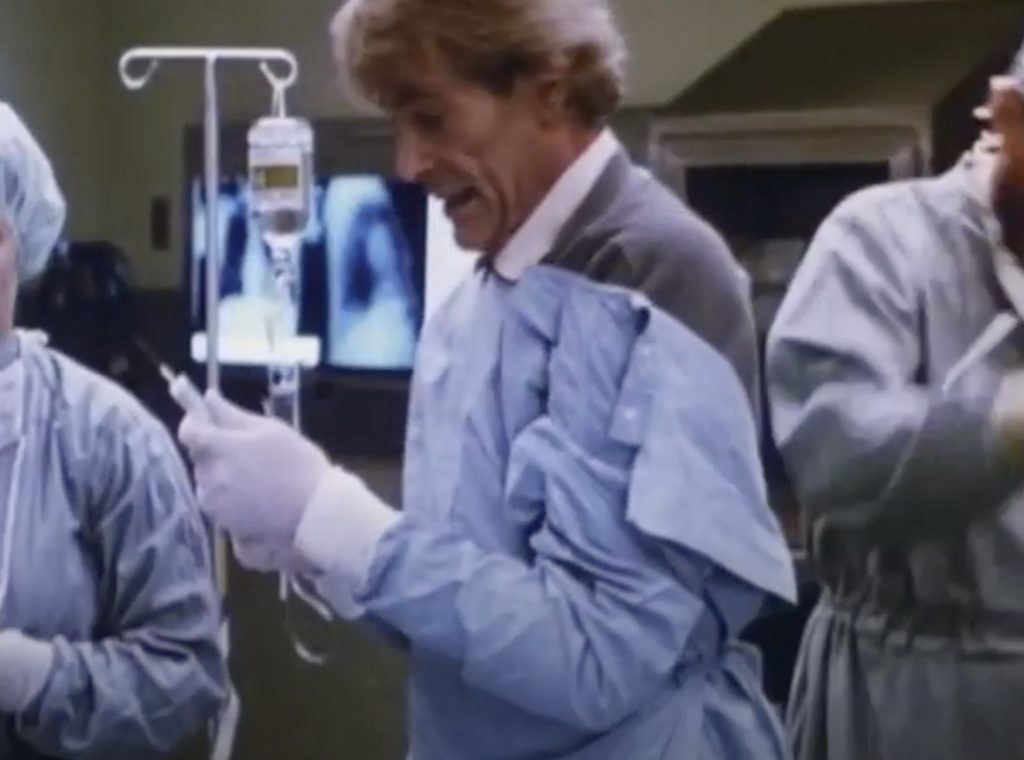
Peter O’Toole (Lawrence of Arabia, The Ruling Class) stars as Harry Wolper, a charmingly eccentric Nobel Prize-winning scientist who has made it his life’s mission to clone his wife Nancy, who died 30 years ago, in order to provide him with a companion in the twilight years of his life. In his quest, he steals money, equipment, and lab assistants from his university. David Ogden Stiers (M*A*S*H) stars as a college official who becomes aware of Wolper’s misdoings and seeks to stop him in his tracks. Guest appearances are by Mariel Hemingway, Virginia Madsen, and Vincent Spano.
The Island (2005)
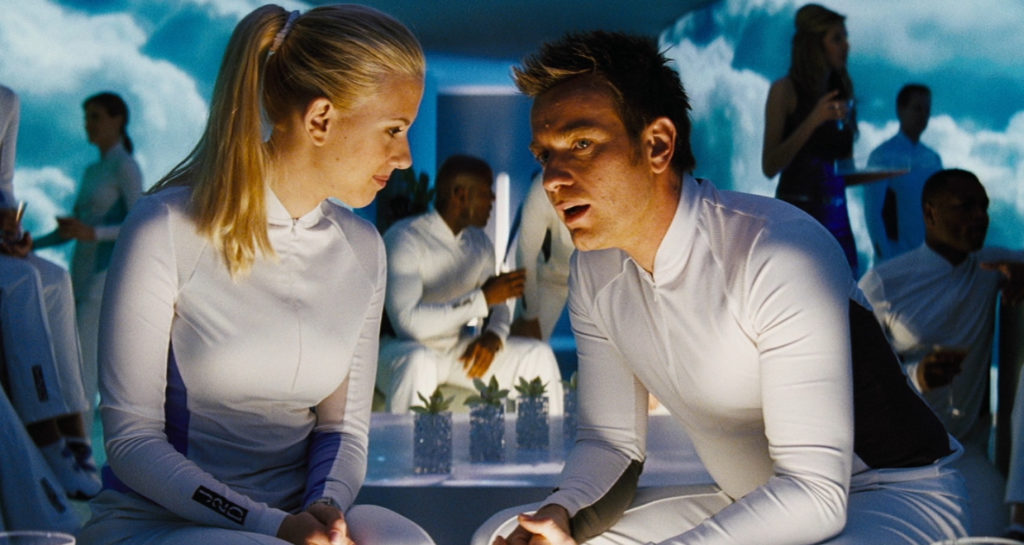
In this science-fiction thriller by Michael Bay (Transformers), Lincoln Six Echo (Ewan McGregor) lives trapped along with several others in a futuristic, isolated, and sterile colony, but he sticks out from the others because he starts to grow highly suspicious of exactly why he’s there. When he learns to his terror that everyone there is simply a clone of a wealthy donor in the outside world who is using the clones for organ harvesting, he plots his escape along with Jordan Two Delta (Scarlett Johansson).
The 6th Day (2000)
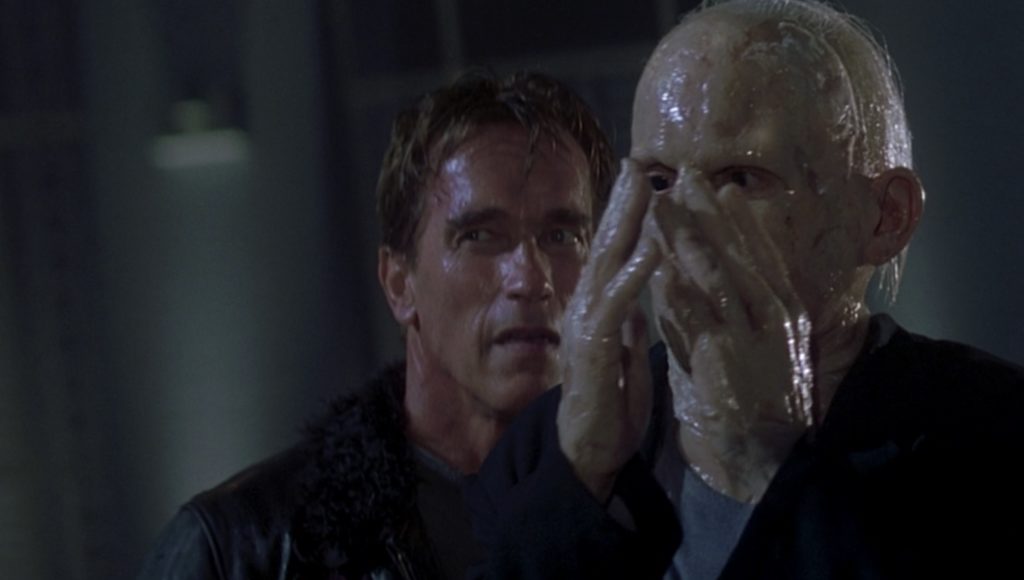
Arnold Schwarzenegger stars as Adam Gibson, a helicopter pilot who helps airlift wealthy skiers to remote slopes along with his friend Hank (Michael Rapaport). The film is set in the near future, where cloning is accepted for animals but illegal for humans—for example, each mall contains a store named RePet that will clone your dead pet right down to its ability to notice you and do the tricks you taught it before it died. But there’s a black market in human cloning whereby illicit cloners can do a simple eye scan of a dead person and “syncord” their entire personality. This is good in the sense that it guarantees immortality for people but bad in the sense that it halts all human evolution. When Gibson meets a clone of himself, his moral convictions urge him to expose and destroy this underworld cloning market.
The Adventures of Pluto Nash (2002)
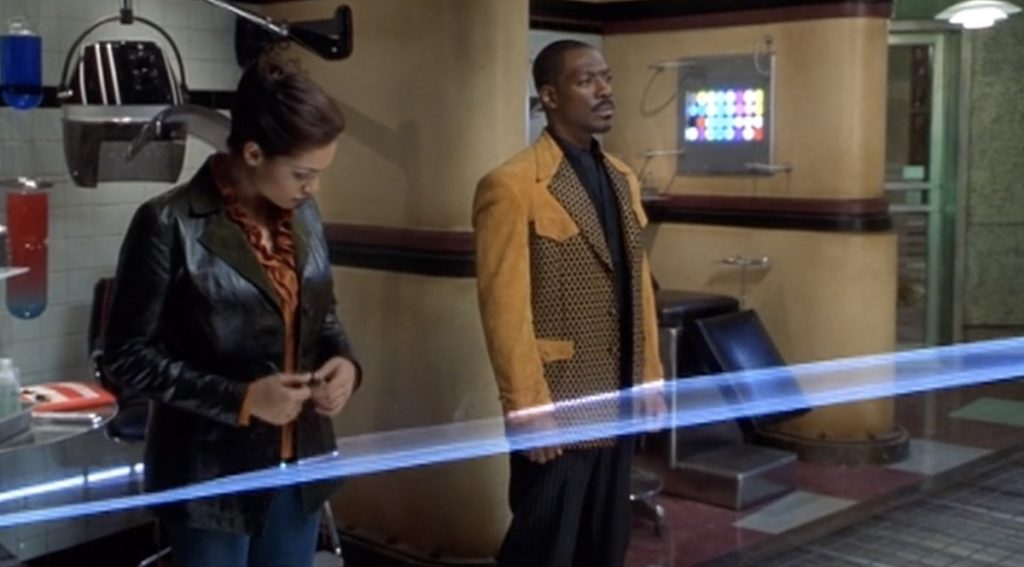
In this legendary box-office bomb—it cost $100 million to make and only took in $7 million in receipts—Eddie Murphy stars in the title role as a con man who runs a nightclub on the surface of the moon in the year 2087. Pluto’s arch-nemesis is a man named Rex Crater, who, Pluto’s police detective friend Rowland (Peter Boyle) informs him, is in deep with mobsters who are involved in human cloning. In the film’s pivotal scene, the previously unseen Rex Crater spins around and reveals that he is indeed a clone of Pluto Nash. Alissa and Heidi Kramer star as a mobster’s wife and cloned wife, and comedic value is attempted to be wrangled from the fact that the mobster doesn’t care which is which so long as they sexually service him.
Aeon Flux (2005)
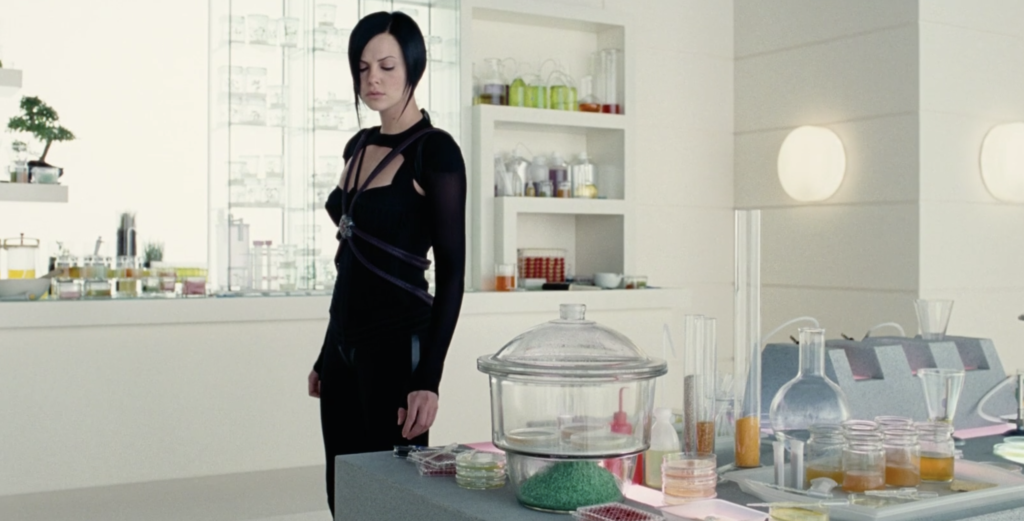
Oscar-winner Charlize Theron (she won Best Actress for her stunning transformation into serial killer Aileen Wuornos in the 2003 film Monster) stars in the title role as an assassin for a group of anti-government rebels known as the Monicans. The film is set in the year 2415, 400 years after all but 1% of humans were killed during a viral pandemic. The human remnants live in a walled city and are protected by the Goodchild corporate regime. When Aeon attempts to overthrow the powers that be, though, she realizes that humanity has only been kept alive for the past four centuries through cloning. Reel Views panned the film: “Some day, someone is going to make a great feature about cloning. The Island wasn’t it, and neither is this.”
Moon (2009)
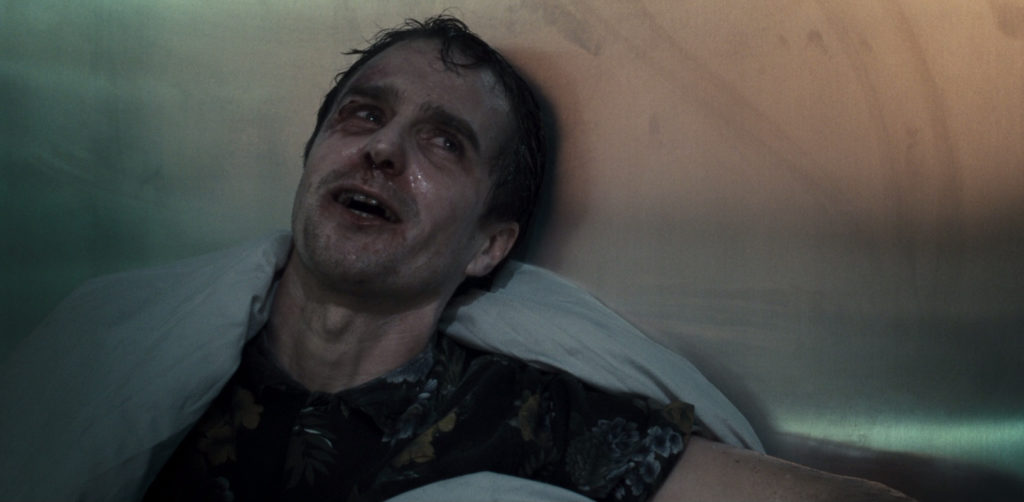
Sam Rockwell stars as Sam Bell, an astronaut assigned to a three-year tour of duty on the moon who works alongside a hyper-intelligent computer known as GERTY. When a land rover crashes, Sam rushes to the scene and rescues the driver—who turns out to be a younger clone of Sam. After a vicious argument between Sam and his younger clone, GERTY reveals that they are actually both clones of the real Sam Bell and that there’s a vault filled with hibernating clones of Sam, each one destined to replace the previous one after a three-year tour of today. Sam—or at least the oldest living clone of Sam—is able to temporarily make contact with the real Sam Bell during a patchy network connection to planet Earth.
Womb (2010)
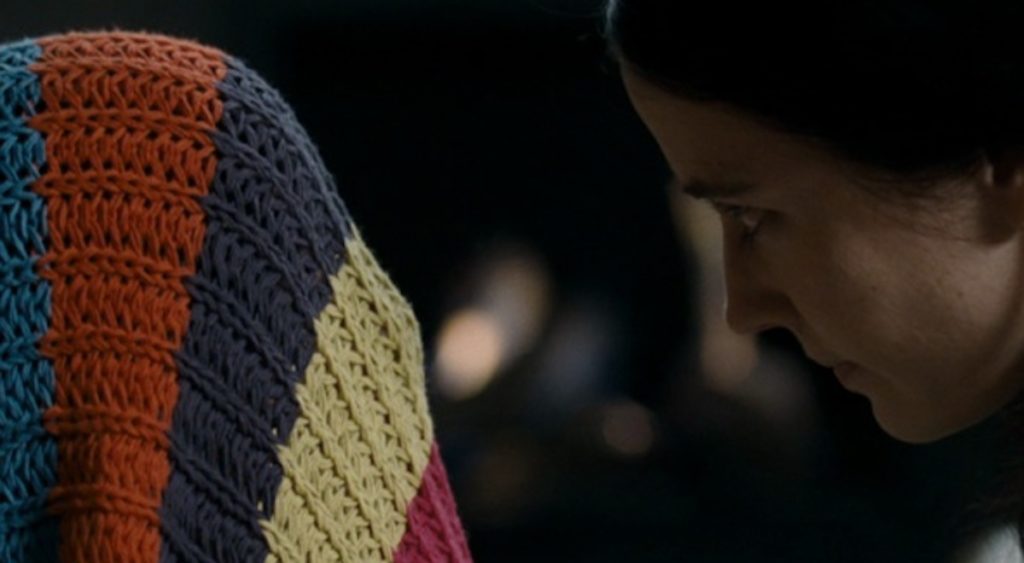
Also released as Clone, this film puts quite a strange twist on the cloning genre—a preteen girl originally falls in love with a boy at a seaside village. They reunite in their twenties, but he is killed shortly thereafter in an accident. Rather than mourn his passing for the rest of her life, she decides to use new cloning technology that will permit her to bear him as a child, then raise him into adulthood, when they can finally be reunited for the rest of their lives. The AV Club questioned the film’s premise: “Is this oh so very romantic, or incredibly appalling?”
Oblivion (2013)
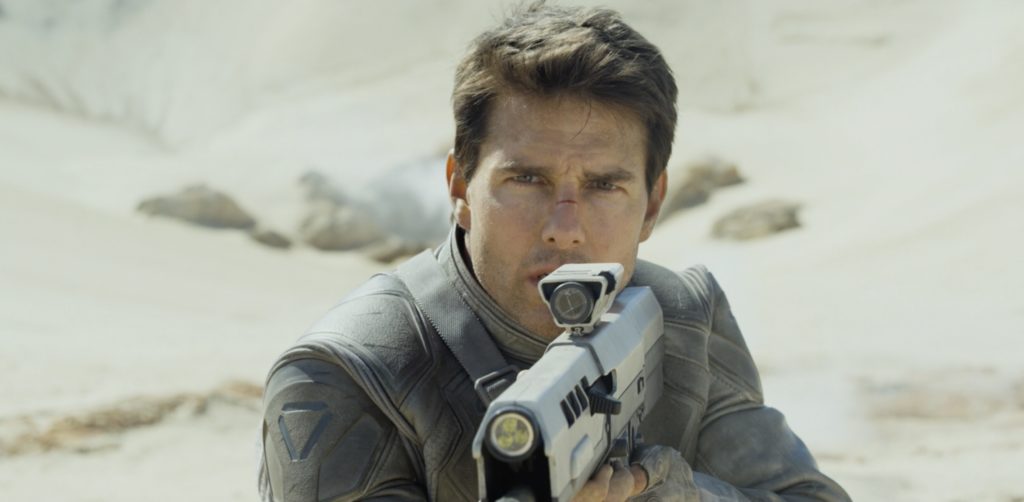
Tom Cruise stars as Jack, who along with Vika (Andrea Riseborough) are part of a team who are tasked to survey the smoldering ruins of planet Earth in the year 2077, sixty years after a conflict with aliens in which the aliens assumed and held onto the upper hand. In the course of their sojourns, though, Jack finds that there are others just like him… Reel Views wrote, “Oblivion is about the nature of identity – a common theme in more literate science fiction works. Is an individual defined by his/her DNA? Is it the sum of one’s memories? What constitutes essential ‘humanness’?”
Replicas (2018)
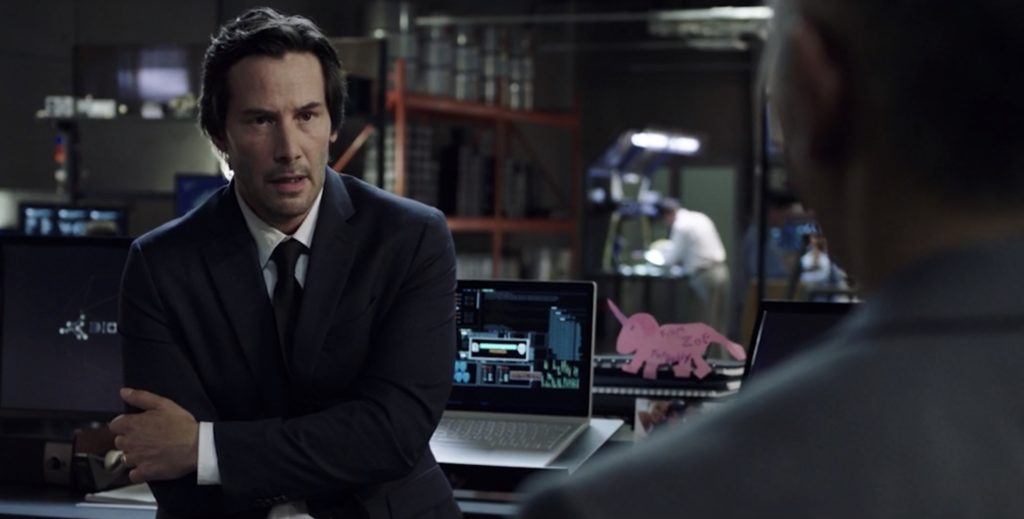
Keanu Reeves stars as William Foster, a genius scientist who lost several family members in a tragic traffic accident. He makes it his sole, obsessive mission to bring his family back to life using technology that he developed that enables him to transfer someone’s consciousness into an android casing. His scientific colleague Ed Whittle (Thomas Middleditch) is also working on cloning, but his methods involve resurrecting dead flesh. Calling it a “half-baked sci-fi yarn,” Den of Geek wrote, “A little Frankenstein here, a touch of RoboCop there, and a whole lot of paranoid conspiracy thriller in the third act makes the tedious Replicas live up to its title in a way that the filmmakers probably didn’t intend.”
Us (2019)
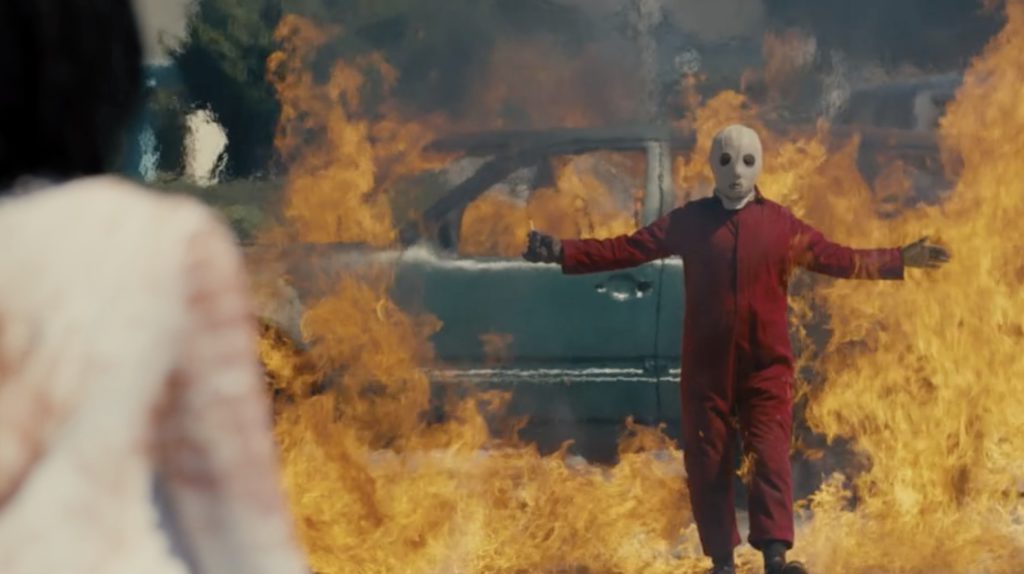
In Jordan Peele’s follow-up to his breakout film Get Out, an upper-class black family of four are taking their annual lakeside vacation, when suddenly their doppelgängers appear in the driveway and begin to haunt them in the midst of a power outage. The clones eventually explain that they are “shadows” of their hosts and can only free themselves by disentangling themselves from them via scissors—which proves to be extremely messy for all involved. Reel Views says, “Despite an intriguing premise and a single great sequence, Us is a muddled affair that goes off the rails the more Peele tries to expand, explore, and explain his basic concept.”
Gemini Man (2019)
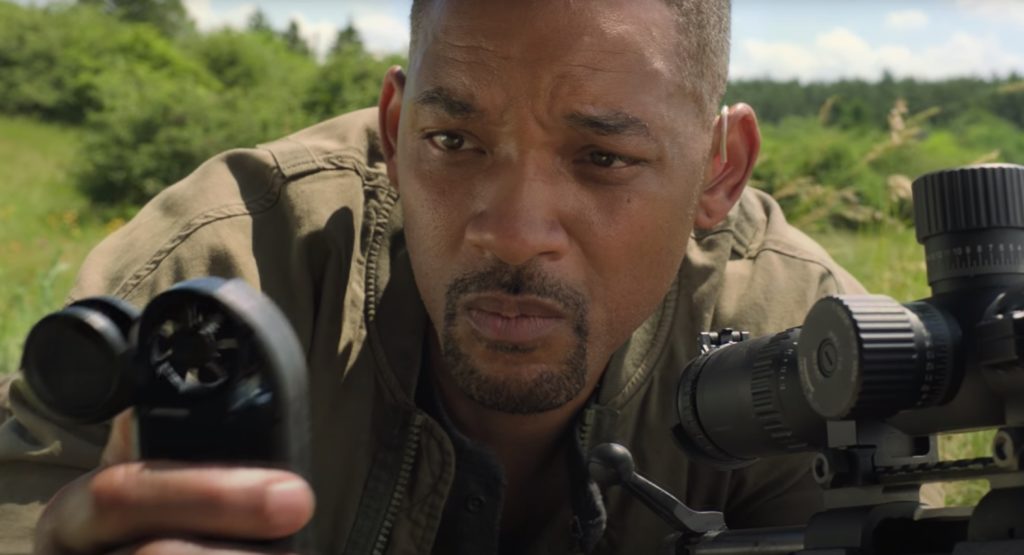
In this thriller by award-winning director Ang Lee, an aging hitman (Will Smith) winds up being stalked by a younger clone of himself and must fight his younger self for survival. Although praising the film’s CGI technology in de-aging Smith, Reel Views mostly gave a negative review: “They fail to make the interaction between a man and his clone sufficiently complex – they try but there’s too much glib banter and testosterone exchanges. The movie often can’t make up its mind whether it wants to be a popcorn thriller or something with an existential bent.”
Horse Girl (2020)
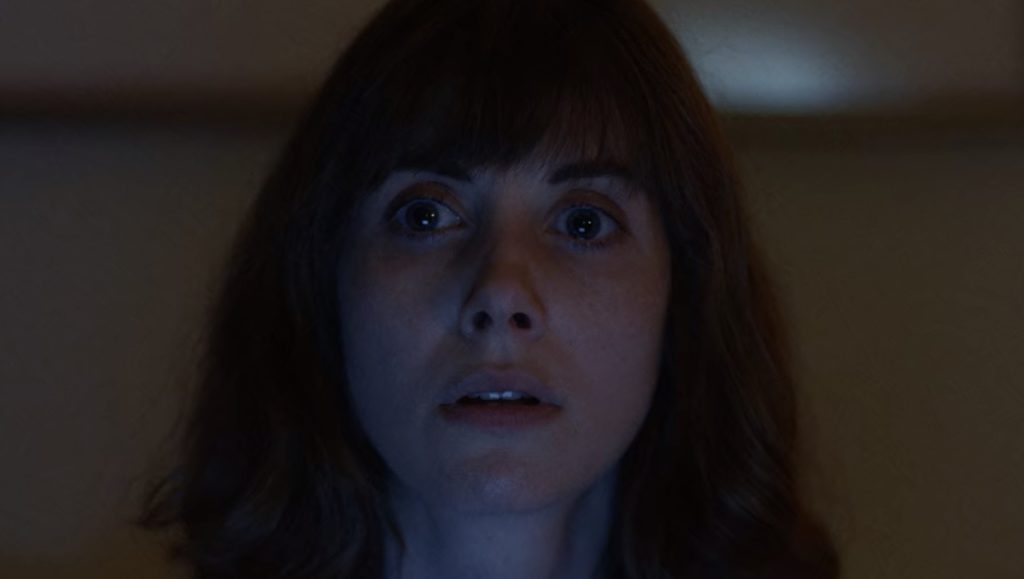
Alison Brie stars as Sarah, a shy young woman who avoids a social life in favor of crafting, horses, and supernatural crime. As a result of the latter obsession combined with a series of increasingly disturbing dreams, Sarah comes to believe that she is actually a clone of her grandmother, or perhaps a time-shifted version of her. She even reveals bruises over her entire body and claw marks on her walls to support her theory. What the filmmakers leave hanging is whether Sarah’s explanation is actually true or if she’s merely in the throes of a deep-seated psychosis.
Dual (2022)
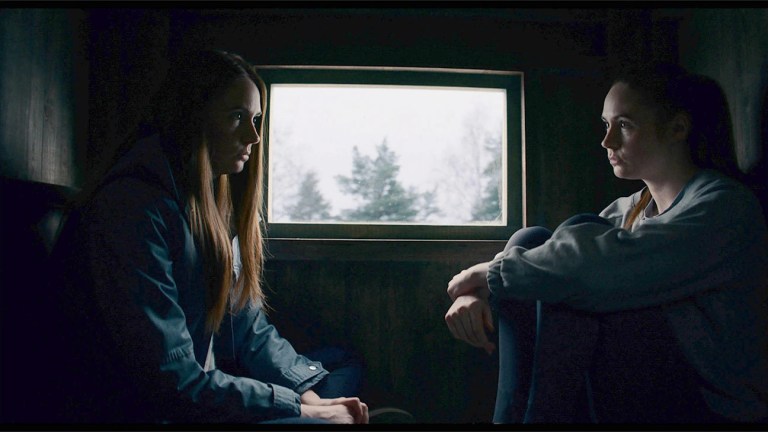
This sci-fi comedy is about a dystopian near-future where human clones are readily available. When Sarah is diagnosed with a terminal illness that gives her a slim chance of survival, she buys a clone to replace her so that her mother and boyfriend won’t be sad. However, when Sarah beats the odds and survives her clone decides that she wants to keep Sarah’s life. This means that by law Sarah will have to duel to the death with her dual.
More Clone Movies
- The Clonus Horror (1979) is a strange film about high-powered people trying to clone themselves and find immortal life.
- Body Snatchers (1993) deals with alien clones.
- Star Trek: Nemesis (2002) Captain Picard is forced to do battle with his own clone.
- Star Wars: Episode II – Attack of the Clones (2002) tells the story of a huge war with droid clones.
- Orphan Black (2013 – 2017) is a TV series with a clone-like figure that aired on BBC America.
- Star Wars: The Clone Wars (2008) is computer-animated TV series in the Star Wars franchise. It tells the origin and starting story of the clone wars.
